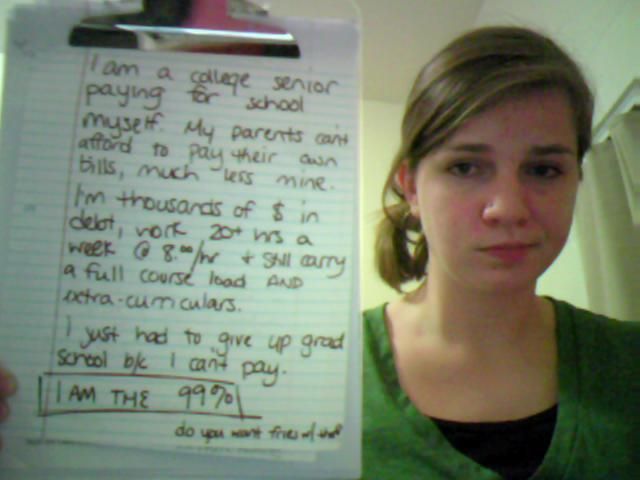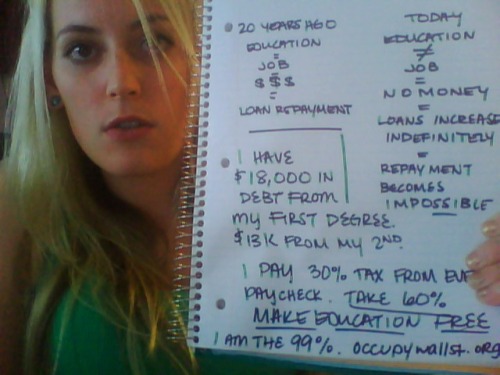 |
| Whose fault is this? |
When people go to a hospital or enroll in a university - something which will easily cost tens or hundreds of thousands of dollars typically there is not actual guide to help make the decision.
Certainly everyone knows that such-and-such a school is the "best," or that XYZ hospital is "the best" but what is this based on?
According to this article hospitals kill about a thousand people a week in the US via medical errors, mistakes and so on - or about 50,000 people a year. I think this number is low compared to other statistics I have seen - but its hard to say exactly what kind of specific errors, e.g., drug mistakes, etc. are included in this number. One average I think that, over all, due to medical "mistakes" of all kinds some 300,000 people a year die.
You might go to a "good" university. But what's your success versus debt ratio? Are you going to get a degree that really a job that will allow you to repay you college debt?
If you are willing to consult something like Zagat why do most people simply go by "word of mouth" on far more important activities such as a hospital stay or selecting a school?
In the case of medicine there is a culture that prevents people from calling out problem physicians or processes. Younger interns may see things like surgeons with incredibly high problem rates enjoy fantastic reputations and wonder why. But calling out such a scenario would almost certainly prevent that intern from getting a job at the hospital in the future.
Similarly there is an "alumni" culture at many schools. Successful leaders in business or academia that have graduated and succeeded. They promote the school heavily and look for money from other alumni in order to further the schools reputation.
As a highschool kid what do you or your parents, on the other hand, know about the success rate of students. How many graduate? How much debt to they carry? How successful are they in later life at paying off their debts?
Sadly information about doctors, hospitals and college success rates is not something readily availabe to consumers.
These institutions have a vested interest in keeping you in the dark because, armed with detailed information, you might not view their particular institution or school so highly.
People often choose a college, doctor or hospital based on reputation.
In reality there is little else to go on.
But would you eat somewhere new without being able to see a menu?
You might, based on the recommendations of a friend. But if the genre of food was not something you were familiar with or the recommendation was from someone you barely knew you might not be so inclined.
Across all food sources in the US, according to this NY Times article and this CDC web page between 3,000 and 5,000 people die each year.
Would you eat at the local Wendy's or McDonald's chain restaurant if you knew 50,000 people died there each year?
In Pittsburgh in 2003 the Mexican chain Chi-Chi's was hit with a Hepatitis A outbreak that killed at least four people and made some 660 others sick (see this).
The chain went bankrupt and disappeared from the restaurant scene forever within a few months.
Hospitals kill 12,500 times more people each year.
No one cares.
Universities crank out folks with massive debt each year - hundreds of thousands (see this previous post).
But parents and students are blinded by the "reputation" of the school - fabulous football or credentials.
No one asks "what's the success to debt ratio?"
Imagine if I had an independent survey of graduates and drop outs.
Let's imagine that 60% of the students graduate.
Let''s imagine that of those who graduate 20% make enough money to afford paying off their student debt (this means having a life and enough extra money beyond a debt payment to, say, buy a car or home).
Let's imagine that it costs $50,000 USD to graduate.
So your "chance" of success is .6 x .4 or .24 (about one in four).
So effectively you are going to gamble four to five years of your life and $50,000 on a one-in-four shot of breaking even over the next ten years (the least amount of time to pay off a $50,000 student loan). So school plus debt payoff equals about fifteen years total.
I say "breaking even" because you might get a job as plumber or electrician in that same time frame, complete your apprentice-ship and afford a decent life as well in your own business.
Its only in the very long run that you might come out ahead if the education you pay for and live to pay off offers more than some other opportunity.
Good thing kids today don't learn how to calculate odds.
Good think potential patients don't either.
If we were educated in this regard we wouldn't tolerate this kind of abject nonsense.
In the end you might do better in Las Vegas if your lucky.
The image at the top was taken from an "Occupy Wall Street"-type web page about "we are the 99%."
Who told these fools to borrow money for an education which had no prospects in the current economy? Who told them to borrow more money than the average annual wage where they lived for an education they could not use?
Why their government job and highschool guidance counselors. People with no real world experience at all in making a living on their own.
Yet these people seem oblivious that they themselves made the choice to follow this advice (they are, for the most part, students on this page).
Like following the pied piper.
Maybe "college" is not the answer.
Maybe hard work and common sense are.
College debt is like kicking a dead whale along the beach.
Imagine...

No comments:
Post a Comment